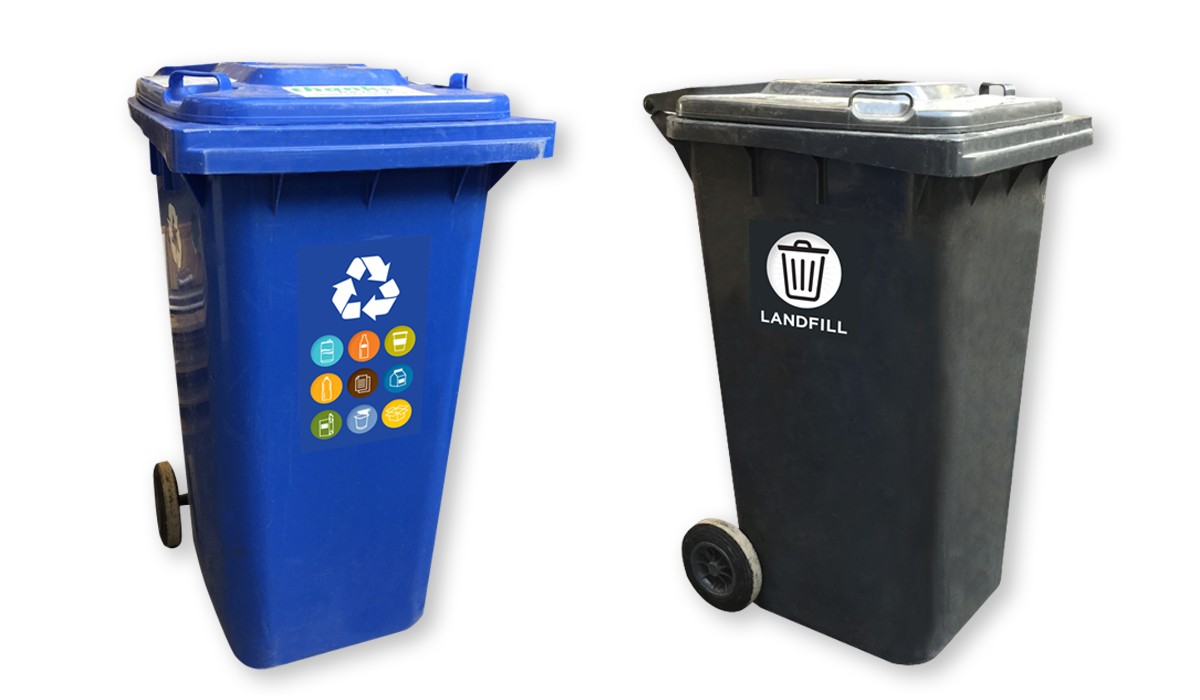
Simplifying recycling on campus
The University of Manitoba will soon implement single-stream recycling, a system that works like the City of Winnipeg trash and recycling program and that will simplify recycling for the entire campus community. By accepting a wider variety of materials and allowing them to all be placed in one container, single-stream recycling leads to increased participation and improved recycling rates.
“The majority of materials we toss out are recyclable, and while the current recycling system on campus is working well, the single-stream system will make recycling even easier,” Ian Hall, director of the office of sustainability says. The University community recycles about 350 tonnes of paper, cardboard, cans, bottles and cartons each year.
The University has had a recycling program for almost 30 years. Over time, the system has grown organically. Today, there are places on campus where it is difficult to find a recycling bin. Consequently, sometimes materials that are recyclable end up in the garbage. The new system will see the number of acceptable items for recycling increase, and eliminate the two-bin recycling system. Instead, a single blue bin will accept all recyclables and will be paired with an identifiable trash bin. The University anticipates that the new system will see the volume of recycling materials diverted from the waste stream increase and the level of contamination (recycling materials that end up in the landfill stream) go down. These results will be shared with the University community after the first phase of the project rolls out.
Ophelia Morris, the University’s waste prevention and recycling coordinator, says she is looking forward to the new system. While it should make recycling easier to do, she notes that the community has other important roles in helping to keep the campus clean and green.
“Our caretakers work very hard to clean our spaces and remove waste from buildings. We need to remember to help them by not moving the waste and recycling bins from their specified locations, and ensuring we put our trash and recyclables into the bins rather than leaving them behind for someone else to throw away.”
While recycling is important, Morris also notes that the community has access to supports for the other two R’s: reduce and reuse. A variety of reduction programs—including Lug-a-Mug, where you can save 25 cents on coffee at most locations when you use a travel mug—and reuse programs, including the UMREG Free Store and the Waste Prevention Re-Shop are available to all community members, year-round.







Hopefully this means there will be a consistent schedule for emptying of the recycling bins. Many I’ve seen recently sit overfull, waiting to be emptied, while adjacent garbage cans seem to be emptied regularly.
What about food, beverages that are left in garbage cans. These can’t be recycled. It will be difficult to keep these items separate.